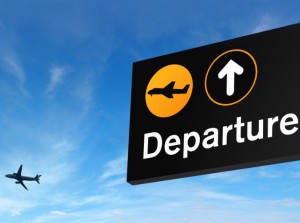 Ryanair-watchers have had a fascinating couple of months. In the face of falling profits, the airline has finally accepted that customer care and corporate reputation matter. Ryanair is doing an unpredented u-turn in its high-handed attitude to customers, the media and other audiences. In the latest development, gleefully controversial CEO Michael O’Leary has announced he will no longer be the airline’s public face. In doing so, he has in fact underlined – as the exception proving the rule – that a company’s CEO must also be Chief Communications Officer.
Ryanair-watchers have had a fascinating couple of months. In the face of falling profits, the airline has finally accepted that customer care and corporate reputation matter. Ryanair is doing an unpredented u-turn in its high-handed attitude to customers, the media and other audiences. In the latest development, gleefully controversial CEO Michael O’Leary has announced he will no longer be the airline’s public face. In doing so, he has in fact underlined – as the exception proving the rule – that a company’s CEO must also be Chief Communications Officer.
For travel businesses, from airlines to tour operators and resorts, the need to demonstrate genuine customer focus and attractive brand values at every level is extremely important. Consumers today have huge choice and generally prefer to buy from suppliers with whom they have a relationship or feel some empathy. As the CEO’s desk is where the ‘buck stops’, the senior executive has a special role in embodying the true values of the business.
CEOs are, of course, extremely busy and eager to delegate responsibilities down the management chain. However, if delegating the role of chief spokesman, the CEO risks his or her business becoming a faceless entity lacking confidence in public and, therefore, ‘personality’. How can a more junior spokesman speak with authority if he is always looking over his shoulder in case his remarks are frowned on from on high? Just as importantly, fine words must be backed by deeds if a corporate reputation is to gather strength and credibility. Ultimately, only the CEO can really decide the company’s behaviour, especially if ‘good PR’ demands changes that cost the company money.
Of course, the CEO cannot be the person handling every request for media comment. His or her time with the media must naturally be focused on the most important matters. However, the top executive must lead from the front in dealing with the media and speaking in public forums. This means being visible to the media as often as other priorities allow, and using these moments to clearly communicate the values the CEO holds dear for the organisation. This behaviour not only puts a personal imprint on the actions of the business, but also gives support and confidence to the other employees involved in corporate communications (provided everyone in the team has received the same ‘hymn sheet’).
Airlines blessed with able CEO-communicators tend to be memorable. Sir Richard Branson is the most widely cited example and is a superb, if unique, role model. Similarly, Sir Stelios Haji-Ioannou achieved vast amounts for easyJet in a short time by embodying the brand in an engaging and convincing way. However, what if you are not a self-made multi-millionaire with the freedom that status affords? In fact, salaried company bosses can be just as effective as communicators, as ably demonstrated by Carolyn McCall at easyJet and Willie Walsh at British Airways/IAG.
By their nature, CEOs tend to be self-confident individuals and not bashful in making their views known. Instead of finding the necessary courage, CEOs often need to acquire a different skill to be effective corporate communicators. Especially in the social media age, communicating is about listening as much as talking. CEOs need to demonstrate convincingly that they hear what their customers are saying and that, crucially, they care deeply about these views. And, as described above, one of the best ways to prove you have listened is to put words into action – something the CEO is uniquely well placed to do.







